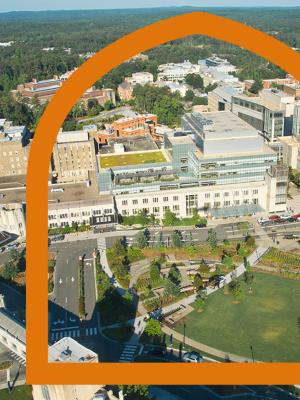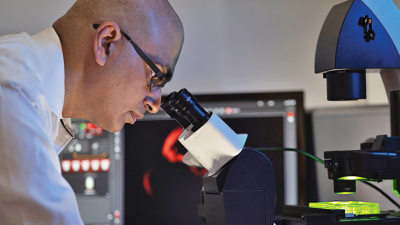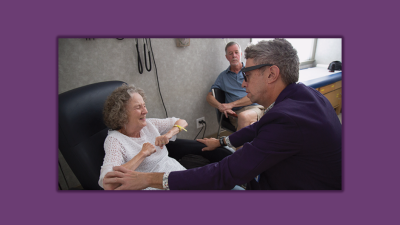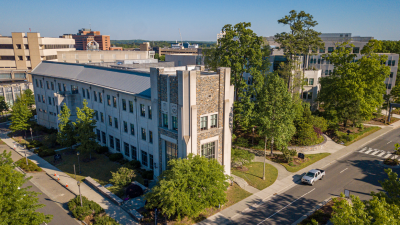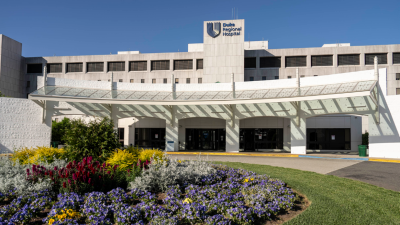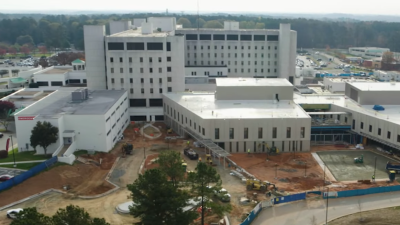
Meet Physicians and Scientists
Escaping the Cancer Care Black Hole
People diagnosed with cancer enter a period of intense treatment at a cancer center, and it can seem to their primary care physicians that they have disappeared. The patient’s overall health can suffer as a result. Duke’s new Center for Onco-Primary Care aims to change that.
Harnessing Light to Measure Brain Function
A portable optical tool that promises to make surgical planning easier and less invasive for children who need surgery for epilepsy will get its first tests in the clinic, thanks to a $300,000 grant from The Hartwell Foundation.
Getting Personal with Blood Cancers
For most cancers, advances in genomics haven’t changed treatment strategies very much. Sandeep Dave, MD, MS, envisions making personalized treatment a reality for more patients, by developing and making better use of tools that already exist.
$1.5 Million Gift Supports ALS Research, Carries Legacy
The lives of three men were honored recently through a $1.5 million gift to establish the Stewart, Hughes, and Wendt ALS Research Endowment. The endowment supports amyotrophic lateral sclerosis (ALS) research at Duke and acknowledges D. Loy Stewart, Larry V. Hughes, and George C. Wendt, three individuals who died of the disease.
Duke Center Offers Hope for People with Misophonia
Thanks to the support of philanthropic partners, in 2019 Duke launched the Center for Misophonia & Emotion Regulation, the only center of its kind in the U.S.
Duke Children’s Hospital Maintains No. 1 Ranking in North Carolina
Duke Children’s Hospital once again ranked among the top 50 children’s medical centers nationally and retained its position at No. 1 in North Carolina, according to this year’s annual list from U.S. News & World Report.
$100 Million to Advance Duke Science and Technology Research
The Duke Endowment of Charlotte, N.C., is supporting Duke University’s efforts to expand its faculty in computation, materials science and the resilience of the body and brain by completing the second phase of a $100 million investment.
Duke University School of Nursing Research on Brain Injuries
More than 5.3 million individuals — children and adults — permanently live with a brain injury-related disability, according to the Brain Injury Association of America. Two researchers from the Duke University School of Nursing, Tolu O. Oyesanya, PhD, RN, and Karin Reuter-Rice, PhD, CPNP-AC, FCCM, FAAN, have devoted an aspect of their research toward better understanding the ramifications that brain injuries inflict on patients and their loved ones and how to give them the best health care possible.
Duke Regional Opens New Behavioral Health Center and Emergency Department
Answering a long-standing need in the community for enhanced behavioral health services, Duke Health is opening a newly built center at Duke Regional Hospital that will provide a setting specifically designed for the comfort and care of these patients.
Building a New Behavioral Health Center for our Community
We’re thrilled to announce the April 2021 opening of the Duke Behavioral Health Center North Durham at Duke Regional Hospital. Part of the largest construction project in the history of Duke Regional Hospital, the center brings together Duke emergency, outpatient, inpatient and electroconvulsive therapy (ECT) behavioral health services in one spectacular new building.
